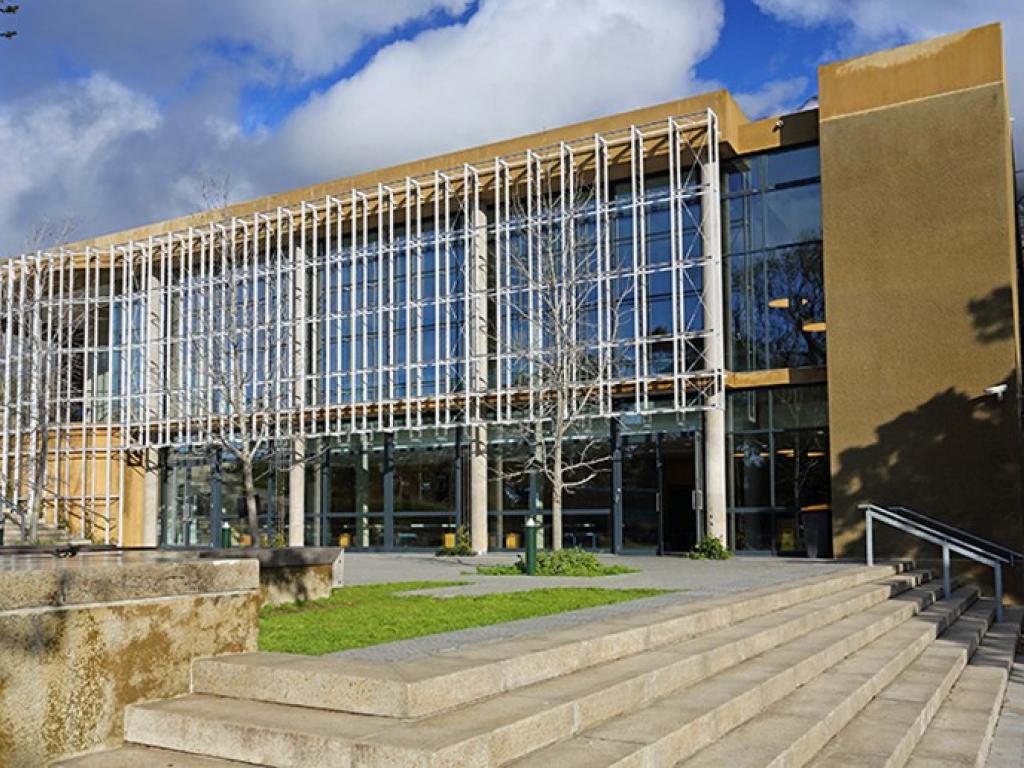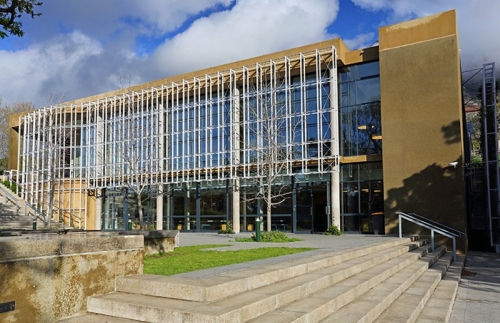SACOMM 2019 to be hosted at UCT


New Lecture Theatre at the University of Cape Town will be host to more than 200 delegates for the annual SACOMM Conference from the 28th to the 30th of August.
The SACOMM annual conference is being hosted at the University of Cape Town from the 28th to the 30th of August 2019. The event is taking place at the New Lecture Theatre along with various other locations on campus.
The South African Communications Association is an academic body representing academics from Southern Africa working in Communication and other related fields. The SACOMM conferences take place at different tertiary institutions every year and it's the organisation's main event.
Dr Ron Irwin-Senior Lecturer of Media Studies at the University of Cape Town's Centre for Film and Media Studies- agreed to sit down and talk about the role of SACOMM and what to expect from the upcoming conference in August. Dr Irwin is one of the organizers of SACOMM and describes SACOMM as “the premier media conference in South Africa”. The Centre for Film and Media is hosting this event and as a Senior Lecturer this is one of his duties.
When asked what the original reasons were for establishing this professional body and the significance of this organisation, Dr Irwin responded with, "SACOMM unites media experts to promote and enhance the study of media in the country and facilitates best practice." SACOMM was established to serve as an academic body for communication sciences in South Africa and has been successful in bonding its members at the yearly conference.
According to Dr Irwin, the aim with hosting these annual conferences, is the promotion of communication studies and the opportunity for media scholars to network with their fellow scholars which essentially leads to the enhancement of communication sciences in all its facets.
Asked if SACOMM has succeeded in improving communication among South African academics, Irwin stated that, "Communication has certainly improved. SACOMM is the premier or central communication centre in South Africa and Africa that provides publication and networking opportunities.”
SACOMM conferences are characterised by a different 'theme' every year and the theme intends to discuss relevant issues facing media/ marketing/ journalism in the country.
Regarding the theme of this year’s conference, Irwin gave an inside scoop on what to expect.
Inside/outside is the theme of this year’s conference.
According to Dr Irwin, this year’s theme looks at the positions of media producers and consumers as being inside or outside media systems; from being inside the echo chamber, whistle-blowers speaking from the inside, journalists in prison, or shut out by censorship. The key question is, “How does one’s position either inside or outside make one vulnerable, empowered, educated or misinformed?” Film (and screen studies in general) will also feature strongly at this year’s conference, with a focus on women in film in Africa.)
At a SACOMM Conference hosted at the University of Free State in 1992, the acting president at the time, Professor Terry Terblanch, made a plea to introduce Communication Studies at school level. Given the serious language skills issue we're experiencing in South Africa, should this suggestion be taken seriously especially in foundation phase education?
Dr Irwin seemed to think that "Yes, it's ultimately happening". Irwin asserted that young people are already plugged in with technology and aware of how to access and operate websites and blogs. While it is true that the new generation are more technologically inclined, it is questionable whether it’s the result of the South African schooling system. There are still schools in Southern Africa and Africa that have limited access to technology and therefore introducing communication studies in the school curriculum is essential as well as equipping more schools with the necessary resources.
It is expected that this year’s conference should get in the region of 200 delegates. The majority will be from South Africa with others coming from other parts of Africa, Europe and the USA.